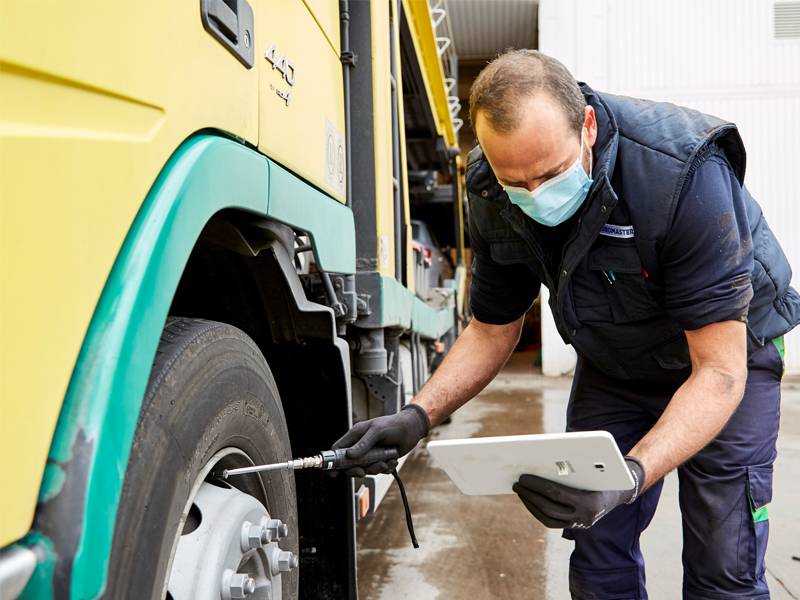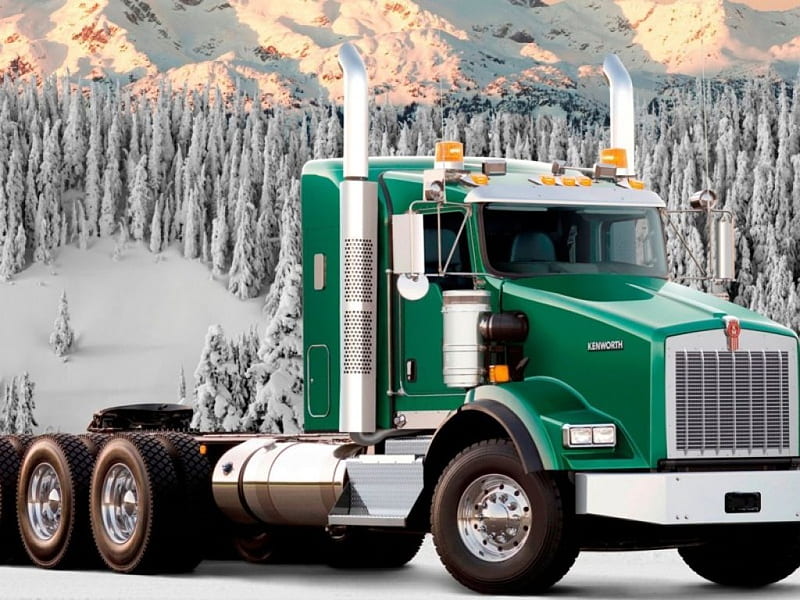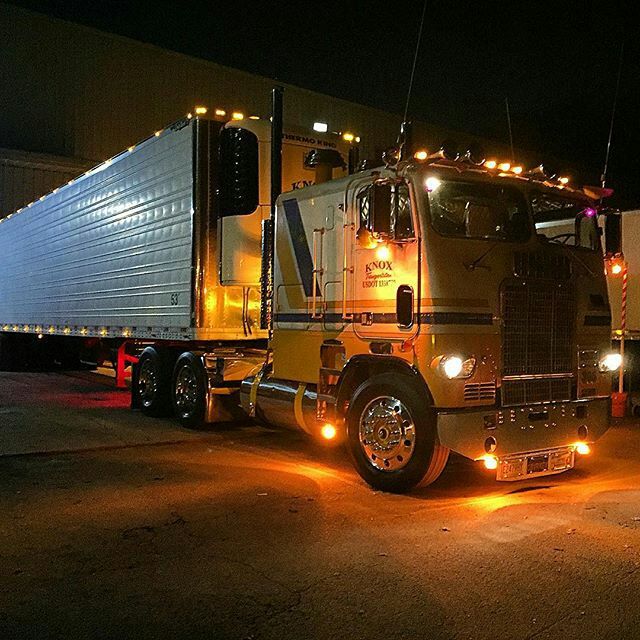
Preventative maintenance is the best way to keep your fleet of trucks running reliably and reduce the risk of breakdown. Here are the top ten preventative maintenance tips that we suggest all trucking businesses follow:
You may also be interested in the following article: 3 Reasons Why Fleet Maintenance Is Important
1. CHECK FLUID LEVELS:
Verifying your engine oil, coolant, transmission, brake, power steering and other underhood fluids only takes a few minutes and is an easy way to avoid major problems. If you see a drop in a fluid level between checks, it’s a good indication that you have a consumption or leak issue and can fix it before it becomes a major problem.
2. CHANGE FLUIDS:
The frequency for changing your fluids will depend on how many miles you drive, the weight of the loads you carry and the type of driving you do (highway, dusty roads, city traffic, etc.) Always follow the manufacturer’s suggestions for changing fluids. Trying to get extra life out of your fluids may save in the short term but cost you big in repairs and breakdowns later on.
3. VERIFY TIRE PRESSURES:
Any trucker will tell you that tire pressure is critical to check often on your large truck or tractor-trailer. Your tires are your contact with the road and you want them inflated properly to avoid uneven wear, maximize fuel economy and provide optimum traction, braking and load-carrying ability at all times.
4. CHECK YOUR TIRES:
Uneven tire wear can be related to tire pressure issues or difficulties with your alignment or suspension. Include a check of your tire condition and tread depth as part of your preventative maintenance plan. We all know how dangerous a tire blowout can be on the highway, so avoid the cost, delay, and danger of a blowout by inspecting your tires frequently.
5. INSPECT YOUR BRAKES:
When you’re carrying a full load, you want to be sure you can get stopped safely. Frequently check your brakes and replace them when they reach the minimum wear condition. Also look for even wear side to side and front to back. This can be a sign that your brake system isn’t balanced and requires repairs or adjustment to provide correct braking performance.
6. CHECK AIR FILTERS:
A clean air filter can go a long way toward reducing your fuel consumption and helping your engine run more smoothly. As a filter gets clogged, it can reduce the amount of air getting into your engine, reducing power and lowering fuel economy. Inspect and change your air filter at regular intervals and check more often if you often drive on dirty, dusty roads.
7. DO A BATTERY LOAD TEST AND ELECTRICAL SYSTEM VERIFICATION:
Long-distance driving and frequent stops and starts put your truck’s electrical system to the test. It is a good idea to add your battery, alternator and electrical system to your preventative maintenance list for a yearly check. If you operate in colder climates, a check before winter is the best way to avoid charging problems.
8. INSPECT YOUR GEARBOX AND CLUTCH:
The combination of high-torque engines and heavy loads mean your gearbox and clutch are worked hard every time you hit the road. A regular inspection of your gearbox and verification that it is functioning properly can help you catch issues as they arise. You will also want to ensure that your clutch isn’t slipping, as this can affect reliability and fuel economy.
9. CHECK OUT YOUR EXTERIOR LIGHTING:
A quick walk-around verification of your exterior lighting helps you catch burnt out bulbs and replace them before you hit the road. Avoid being pulled over and wasting time over a burnt bulb and check that all of your running, brake, signal, and hazard lights are working properly as part of your preventative maintenance.
10. SERVICE YOUR FIFTH WHEEL PLATFORM:
Problems with your fifth wheel platform can slow you down and even keep your truck off the road if you can’t securely hook up your trailer. On a regular basis, you should inspect your platform and grease/adjust as necessary. Clean any accumulated dirt from the platform mechanism and inspect for excessive wear or components that need to be replaced.
Every trucking company has a unique fleet of trucks and trailers and needs to adapt their preventative maintenance list to suit their situation. Including these ten tips in your list will help ensure your trucks run more reliably and are less susceptible to breakdown.
To get more information about us, follow us on Facebook and Instagram. Or call us right now for a road service on: repairtrucktrailer.com





